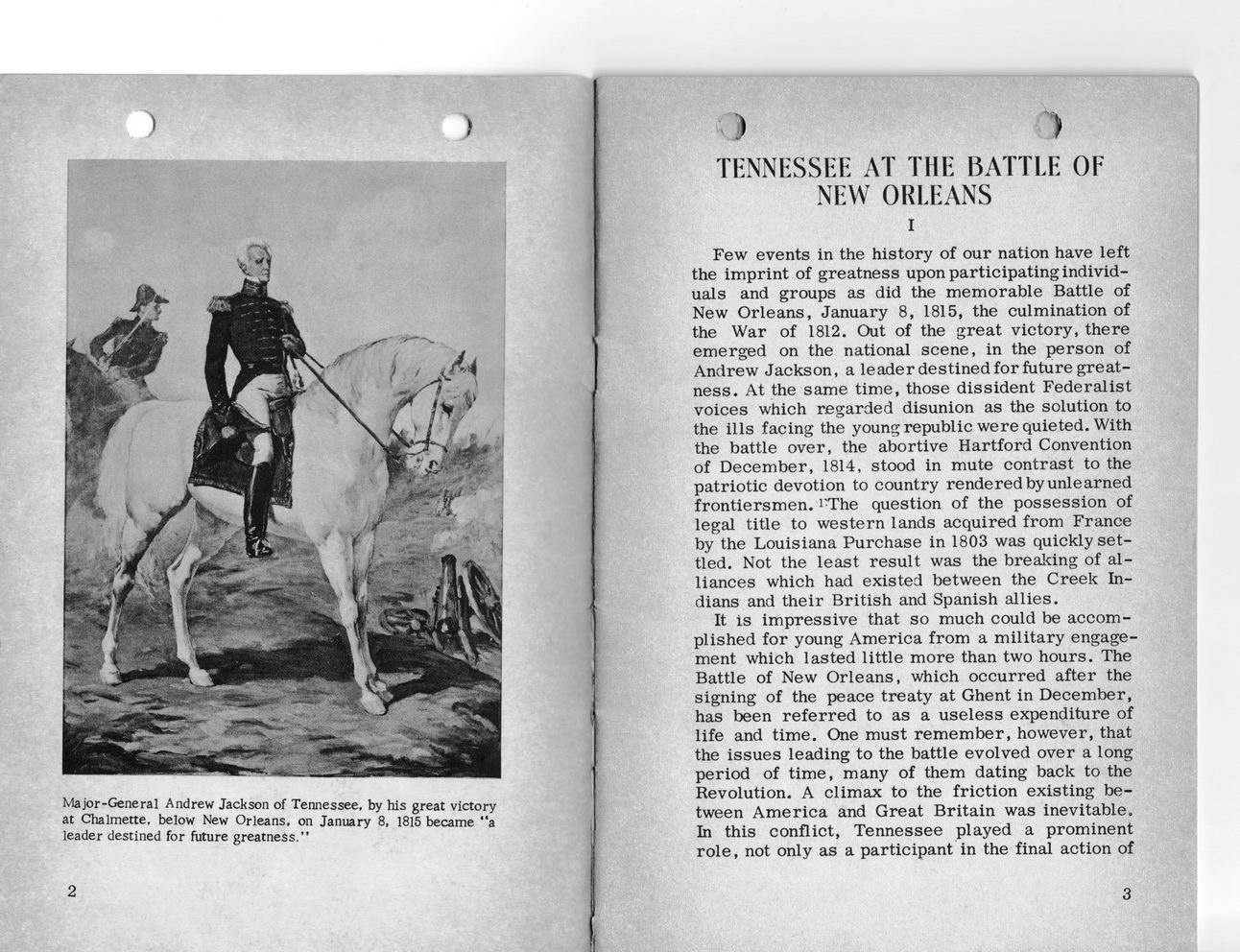This text was obtained via automated optical character recognition.
It has not been edited and may therefore contain several errors.
) Major-General Andrew Jackson of Tennessee, by his great victory at Chalmette, below New Orleans, on January 8, 1815 became "a leader destined for future greatness.? 2 ) ) TENNESSEE AT THE BATTLE OF NEW ORLEANS i Few events in the history of our nation have left the imprint of greatness upon participating individuals and groups as did the memorable Battle of New Orleans, January 8, 1815, the culmination of the War of 1812. Out of the great victory, there emerged on the national scene, in the person of Andrew Jackson, a leader destined for future greatness. At the same time, those dissident Federalist voices which regarded disunion as the solution to the ills facing the young republic were quieted. With the battle over, the abortive Hartford Convention of December, 1814, stood in mute contrast to the patriotic devotion to country rendered by unlearned frontiersmen. i:The question of the possession of legal title to western lands acquired from France by the Louisiana Purchase in 1803 was quickly settled. Not the least result was the breaking of alliances which had existed between the Creek Indians and their British and Spanish allies. It is impressive that so much could be accomplished for young America from a military engagement which lasted little more than two hours. The Battle of New Orleans, which occurred after the signing of the peace treaty at Ghent in December, has been referred to as a useless expenditure of life and time. One must remember, however, that the issues leading to the battle evolved over a long period of time, many of them dating back to the Revolution. A climax to the friction existing between America and Great Britain was inevitable. In this conflict, Tennessee played a prominent role, not only as a participant in the final action of 3

Battle of 1814 3